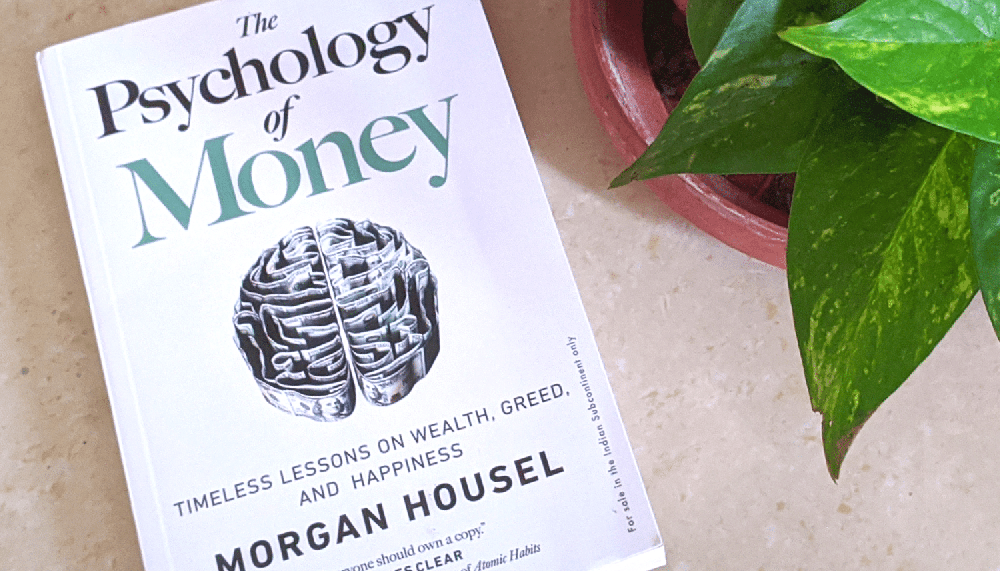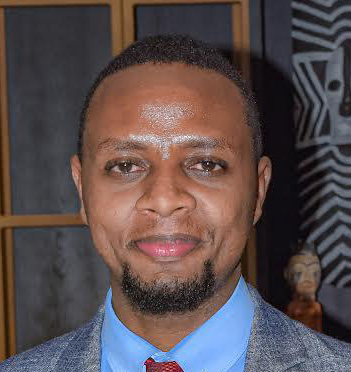

The finance field is often seen as a way out to make fortunes for millions of workers who aspire to make a decent living, and it is for a good reason. Think about billionaires who have built fortunes, many have built their wealth through finance.
From Warren Buffett, Ken Griffin, and Jim Simons, to Michael Bloomberg, Stephen Schwarzman, Japan’s Masayoshi Son, and Indonesia’s Robert Budi Hartono, and all the way to Nigeria’s Tony Elumelu, there is a long list of billionaires who have made a fortune in finance.
Yet, most of them have been inspired by those who came before them. The only way to find out their secrets, many have argued, is through reading books that have shaped the world of finance.
The New Times’ Business Editor Julius Bizimungu reached out to different experts across banking, insurance, personal finance, pensions, investment banking, and financial markets asking them to recommend books that anyone who wants to understand the world of finance should read.
Below is a curated list of books.
The wisdom of Finance by Mihir Desai
"The book is amazing, relates to fundamental principles of finance to everyday life,” says Diane Karusisi, chief executive officer of Bank of Kigali, the largest bank in Rwanda by asset base.
The book captures Desai’s exploration of the ideas of finance as seen through the unusual prism of the humanities. Through the book, Desai shows that outsiders can access the underlying ideas easily and insiders can reacquaint themselves with the core humanity of their profession.
Desai, a professor at Harvard Business School and Harvard Law School, uses storytelling, literature, and philosophy to explore the ethical, emotional, and intellectual dimensions of finance.
For example, he uses the story of "Jane Eyre” to describe the concept of value investing. He uses "The Maltese Falcon” to explain the principal-agent problem, and he borrows the Greek myths and modern stories to discuss leverage, bankruptcy, and risk management.
The book emphasises the importance of ethics and morality in financial decision-making. It encourages readers to see finance not just as a means to accumulate wealth but as a tool for managing life's risks and pursuing meaningful goals.
A random Walk Down Wall Street by Burton G Malkiel
The book was recommended by Eric Quartey, CEO of Axis Pensions.
Burton Malkiel’s 1973 A Random Walk Down Wall Street is often described as an explosive contribution to debates about how to reap a good return on investing in stocks and shares.
The book has been reissued and updated many times since Malkiel’s original version, but it remains an indispensable contribution to the world of investment strategy – one that continues to cause controversy among investment professionals today.
At the book’s heart lies a simple question of evaluation: just how successful are investment experts? The financial world was, and is, full of people who claim to have the knowledge and expertise to outperform the markets, and produce larger gains for investors as a result of their knowledge. But how successful, Malkiel asked, are they really?
The rest of the details can be found in this book.
Rich Dad Poor Dad by Robert Kiyosaki
This book was recommended by both Joseph Mutuma, Chief Financial Officer at Equity Bank Rwanda and Celestin Rwabukumba, CEO of Rwanda Stock Exchange (RSE).
Mutuma specifically says this book can enhance anyone’s understanding of personal finance and thus corporate finance. I agree with him because growing up, specifically in high school, I had a chance to read this book and I hold dear the lessons I learnt from this book.
Rich Dad Poor Dad is a 1997 book written by Robert Kiyosaki and Sharon Lechter. It advocates the importance of financial literacy, financial independence and building wealth through investing in assets, real estate investing, starting and owning businesses, as well as increasing one's financial intelligence.
Value: The Four Cornerstones of Corporate Finance by McKinsey & Company Inc
This book was also recommended by Joseph Mutuma who argues that it is a bridge to getting to know and understand the cornerstones of corporate finance as the name of the book suggests.
Value is a guide to the essential issues of corporate finance. It explores the core of corporate finance without getting bogged down in numbers and is intended to give managers an accessible guide to both the foundations and applications of corporate finance.
The book, filled with in-depth insights from experts at McKinsey & Company, serves as a reliable resource as it takes a much more qualitative approach to what the authors consider a lost art.
The Bank that Lived a Little by Philip Augar
This book, which chronicles events at one of Britain’s largest financial institutions, was recommended by Patience Mutesi, the Managing Director of BPR Bank Rwanda.
Barcalys is one of the biggest names on the British high street. Based on unparalleled access to those involved, and told with thrilling pace and drama, Barclays – The Bank that Lived a Little is the story of Barclays since Big Bang, Britain's financial services revolution of 1986.
Philip Augar describes in detail three decades of boardroom intrigue driven by greed, ambition and a love of power, and by shifting alliances between rival camps – one desperate for Barclays to join the top table of global banks, the other preferring a smaller domestic role.
What It Takes: Lessons in the Pursuit of Excellence by Stephen A. Schwarzman
Siongo Kisoso, Chief Executive Officer of BK Capital, an investment advisory firm and a subsidiary of BK Group, described this book as "very insightful.”
People know who Stephen Schwarzman is – at least they think they do. He’s the man who took $400,000 and co-founded Blackstone, the investment firm that manages over $500 billion (as of January 2019).
He’s the CEO whose views are sought by heads of state. He’s the billionaire philanthropist who founded Schwarzman Scholars, this century’s version of the Rhodes Scholarship, in China.
But behind these achievements is a man who has spent his life learning and reflecting on what it takes to achieve excellence, make an impact, and live a life of consequence.
The book uses impactful episodes from Schwarzman's life to show readers how to build, transform and lead thriving organisations.
How to Invest: Masters on the Craft by David Rubenstein
Kisoso also recommended this book for anyone who want to understand investment banking. Having had a chance to attend David Rubenstein’s forums when I was at the University of Chicago in 2023 for my Spring academic programme, I couldn’t agree more with his recommendation.
Rubenstein has distinguished himself at the intersection of finance, law and investment. His private equity firm, Carlyle Group, currently has $447 billion of assets under management.
How to Invest is a New York Times bestseller and a master class on investing, featuring conversations with the biggest names in finance. It answers questions like:
How did Stan Druckenmiller short the British pound in one trade for a profit of $1 billion dollars?
What made Sam Zell the smartest, toughest investor the world of real estate has ever seen?
How did Mike Novogratz make $250 million off crypto in one year?
How did Larry Fink build BlackRock from scratch into a firm that manages more than $10 trillion?
How did Mary Callahan Erdoes rise to the top of J.P. Morgan’s wealth management division to manage more than $4 trillion for individuals and families all over the world?
How did Seth Klarman perfect value investing to consistently deliver net returns of nearly 20 per cent?
The Slight Edge by Jeff Olson
When I asked Isaac Nkusi, a personal finance expert based in Kigali, to recommend a book or two about personal finance. He went extra mile to recommend five books.
The Slight Edge, he told me, teaches the foundations and process required to succeed personally, with money or anything.
The following four books were also recommended by Nkusi.
The Richest Man in Babylon by George S. Clason
The Richest Man in Babylon is a 1926 book by George S. Clason that dispenses financial advice through a collection of parables set 4,097 years earlier, in ancient Babylon.
The book remains in print almost a century after the parables were originally published, and is regarded as a classic of personal financial advice. "This book teaches the basics of personal finance management and the purpose of each step to take.”
The Lunchtime Trader by Marcus De Maria
The idea behind The Lunchtime Trader is simple: If you are working 8-10 hours a day for someone else, making them money, are you at least spending 20 mins a day during your lunchtime ensuring that you are creating wealth for yourself and your family.
You are there anyway, you probably have access to a computer and the internet, so why not use the time while munching on your sandwich?
"This book teaches the strategic approach to investing that gets you the best results if you follow them consistently,” says Nkusi.
The Psychology of Money by Morgan Housel
Doing well with money isn’t necessarily about what you know. It’s about how you behave. And behavior is hard to teach, even to really smart people.
Money―investing, personal finance, and business decisions―is typically taught as a math-based field, where data and formulas tell us exactly what to do. But in the real-world people don’t make financial decisions on a spreadsheet.
They make them at the dinner table, or in a meeting room, where personal history, your own unique view of the world, ego, pride, marketing, and odd incentives are scrambled together.
In The Psychology of Money, award-winning author Morgan Housel shares 19 short stories exploring the different ways people think about money and teaches you how to make better sense of one of life’s most important topics.
"This book teaches the mindset needed to succeed with Money,” Nkusi says, recommending readingThe Automatic Millionaire by David Bach, which he asserts teaches the importance of automations that turn good money habits into a great financial lifestyle.


